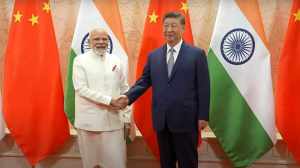SAARC to slash telecom tariff
COLOMBO, May 24: The first meeting of communication ministers of SAARC countries concluded here on Sunday with an unanimous agreement to low...

COLOMBO, May 24: The first meeting of communication ministers of SAARC countries concluded here on Sunday with an unanimous agreement to lower telecommunication tariffs in the region.
It was the second meeting of regional representatives after India8217;s recent nuclear tests, but in contrast to the information ministers meeting in Dhaka, the matter was not raised by any of the participating countries including Pakistan, either officially or informally. 8220;It was the smoothest ever conference. The spirit of SAARC was evident. The bomb did not cast any shadow on the conference, it did not figure even informally, not even in my bilateral discussions,8221; said Indian Communications Minister Sushma Swaraj.One reason for this could be that Pakistan, which does not have a communications minister at present, was represented by a bureaucrat and not a politician.
At the end of the three-day meeting, the ministers adopted a unanimous 8220;plan of action8221;, which includes the reduction of telecom tariffs within the region tothe 8220;lowest extent feasible8221;. Though no time-frame has been set for achieving this goal, Sri Lanka said the attempt would be to put in place the new low tariffs by July this year.
8220;The idea is that when the leaders of the SAARC countries are assembled here in July this year, they should be able to call their countries at the lowered rates,8221; said minister Mangala Samaraweera at a news conference here on Sunday.
The conference also agreed to complete digitalisation of the inter-country telecommunication infrastructure by December 1999, allocate sufficient band-width for regional telecom links and establish an intra-regional high bandwidth hub for leased lines.
Another important decision taken at the meeting was that SAARC countries would adopt a common position on telecommunication matters at world fora for the benefit of the region.
Samaraweera described the conference as 8220;very successful8221; and said the action plan finalised by the member countries would be of great significance in improving theirinformation technologies and 8220;crucial8221; to the economic and social development of the region.
8220;It will further enhance the ability of the region to compete with the West,8221; he said.
- 01
- 02
- 03
- 04
- 05































